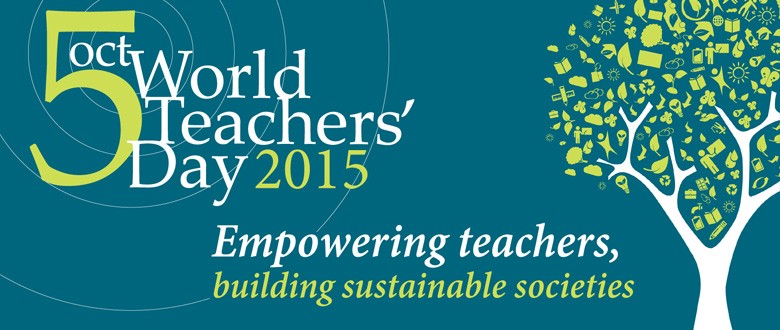
"It is recognized that teachers are not only a means to implementing education goals", says the Incheon Declaration at the World Education Forum in May 2015. "Teachers are the key to sustainability and national capacity in achieving learning and creating societies based on knowledge, values and ethics. However, they continue to face challenges brought about by staff shortages, poor training and low status. We will ensure that teachers and educators are empowered, adequately recruited, well-trained, professionally qualified, motivated and supported within well-resourced, efficient and effectively governed systems."
The UNESCO Institute for Statistics estimates that to achieve the goal of universal primary education by 2020 countries will need to recruit a total of 12.6 million primary teachers.
"World Teachers’ Day on October 5th 2015, highlights the fact that teachers must be empowered as a critical step towards quality education and sustainable societies", writes UNESCO.
"The Incheon Declaration at the World Education Forum (WEF) in May 2015 clearly recognized the importance of empowerment. At the forum 1600 participants from 160 countries committed to 'ensure that teachers and educators are empowered, adequately recruited, well-trained, professionally qualified, motivated and supported within well-resourced, efficient and effectively governed systems'.
The Oslo Summit, 'Education for Development', held in July 2015, highlighted the need for further investment in teacher education. The proposed Sustainable Development Goals to be adopted at the UN Summit in September 2015, include a specific objective under Goal 4 to by 2030 'substantially increase the supply of qualified teachers, including through international cooperation for teacher training in developing countries, especially least developed countries and small island developing States'."




